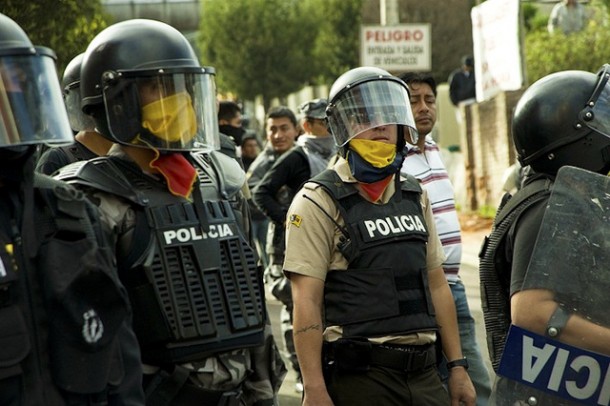Read Part I of this article here.
Ecuadorian Messiah
Rafael Correa, newly-elected President in 2007, and considered the conductor 2008 new Constitution crusade, fostered one of the world’s most inventive and inspiring efforts to protect rainforests: the “Yasuni ITT Initiative”. Under this scheme, millions of barrels of oil, about 20% of the country’s total reserves, were to be protected and not extracted, in exchange for monetary benefits collected from developed countries. The funds gathered were to be used for social welfare and sustainable development. Optimism was widespread, as environmental protection seemed to be able to coexist, for the very first time, with the economic development. Unfortunately, once again, optimistic dreams clashed with market practices. The Yasuni ITT Initiative aimed to raise $3.6 billion, but only $366 million was pledged, and just $13 million actually collected.
In 2013, the Yasuni ITT trust fund was liquidated, and the initiative ended. Moreover, around this time another side of Ecuador’s new life has surfaced. After refusing to pay the “illegitimate” public debt and defaulting over $3 million worth of bonds, Ecuador was considered a flyweight in the financial markets, and President Correa found solvency in China; PetroChina, more specifically. In July 2009, the Asian giant, hungry for oil ownership, lent its first, of several, billions of dollars to the Correa’s administration.
The clouds thickened on the government, with some detractors accusing them of never giving real support to the Yasuni ITT initiative, and depicting a scenario where Correa was even betting on its failure while flattering oil companies. Shortly after the end of the Initiative in 2013, Andes Petroleum, another Chinese company, submitted bids for exploration and drillings within the Yasuni National Park; and the Chinese government granted Ecuador a fresh $1.2 billion loan.
Megadiverse Inequity
What happened next is well recapped in the Ecuador’s World Report 2015 by Human Rights Watch. Correa’s administration boasts great control over media and civil society. This organization undercuts the freedom of press by subjecting journalists and media figures to public denunciation and retaliatory litigation. Political influence and corruption have also deepened in Ecuador’s judiciary system, as stressed in a report produced by three international NGOs – the Due Process of Law Foundation, Dejusticia, and the Institute for Legal Defense. Since President Correa took office in 2007, prosecutors have repeatedly applied a “terrorism and sabotage” provision of the criminal code against participants engaged in public protests opposing environmental and other issues.
In 2013, an executive decree issued the government’ s power to intervene in NGO operations, including dissolving groups on the grounds that they have “compromise(d) public peace” or have engaged in activities that are different than those identified upon registering with the government.
Ecuador suffered a serious economic crisis in the late 1990s, which forced half of the population into poverty, leading to high levels of migration from rural areas to cities and foreign countries. The turning point was the adoption of the US Dollar as currency in 2011. In recent years, Ecuador’s economy has become service-based; although, a small percentage of the workforce still engages in agriculture. Petroleum is the country’s largest industry. Others include food processing, textile manufacturing, wood products, and chemicals. The biggest challenge is represented by sustainable tourism.
In recent years, sustainability in the travel industry has progressed from a truly niche consideration to an industry-wide priority. It has been particularly successful in attracting private investments to establish privately owned natural parks and reserves. Nevertheless, recent empirical analysis of economic incentives for ecotourism in Ecuador shows local income generation depends primarily on the level of local organization, as well as the degree of tourism specialization available. Some Ecuadorian NGOs are promoting this kind of specialization, as Conservacion & Desarrollo, which launched a program called Smart Voyager, aimed at training and certifying operators in sustainable practices of tourism.



